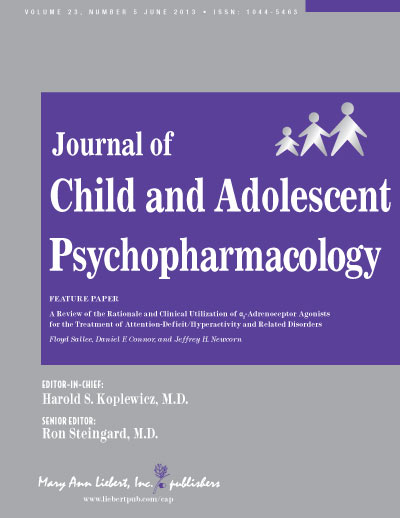What is Autism Spectrum Disorder (ASD)?
ASD is a a scope of complex neurodevelopment issue conditions, exhibited by social problems, communication challenges and confined, repetitious behavioral patterns. ASD sufferers differ from others in terms of their communication, interaction, behaviors and learning patterns. The severity of this disorder can range from severe to very mild. Some who have received this diagnosis are even gifted. Some need considerable assistance with living their lives, while others require less attention.
One thing is for sure: ASD shows up in all ages, ethnicities and socioeconomic groups. The proportion of children with autism grows every year. Male ASD sufferers surpass females by 4 to 1.
ASD’s characteristics include:
Continual inability to effectively communicate and interact with others.
Repetitive behaviors.
Restricted interests and activities.
Emergent symptoms early in life (usually the first two years).
Significant impairment in being able to function in life.
“Spectrum” disorders are those in which various symptoms, skills and degrees of impairment or disability are present. At one end of the spectrum, there’s only mild impairment. On the other end, a sufferer may be severely impaired.
ASD Symptoms
Those with ASD find it difficult to interact with others socially, often lacking inadequate emotional and communication skills. Maybe they will repeat certain behaviors or will stick with certain daily activities. They may have non-traditional ways to learn, pay attention or react to stimuli.
Three areas in which ASD sufferers find challenges include:
- Social struggles: Most kids with ASD struggle socially interacting. They may rarely make eye contact, fail to respond to questions/comments/stressful situations/affection, and rarely exhibit the fun they are having with toys or during activities.
- Communication concerns: By their first birthday, most toddlers can say 1-2 words, respond when they someone calls their name, and point to a toy, drink or food. They are fast learning to say “no”, often through gestures. However, for toddlers with ASD, such milestones are not attained in the same timeframe. For example, they may have trouble:
- Responding to their name
- Reacting to attempts to gain their attention
- Developing gestures, like pointing
- Cooing and babbling
- Developing language abilities
- Learning to communicate using pictures or their own sign language
- Combining words into logical sentences
- Repeating words or phrases
- Repetitive behaviors: Kids with ASD often display mild to extreme repetitive motions. For instance, they may flap their arms or walk in circles, while others may brush their fingers by their eyes.
They may also display:
- Sensory problems: They may overreact (with hands on their ears or eyes, or scream) at certain stimuli, like a slight touch, sounds or temperatures.
- Sleep problems: They may have trouble falling or staying asleep, thus aggravating their cognitive abilities and family stress or health levels.
- Intellectual disability: In some areas, their intellectual abilities may be normal, while others may be somewhat weak.
- Seizures: Approximately 25% of ASD children experience seizures, mainly caused by abnormal electrical activity in the brain.
- Physical problems: Kids with ASD sometimes experience gastrointestinal or digestive problems.
- Psychological disorders: They may have anxiety disorders, ADHD or depression.
ASD Diagnosis
There are no medical tests to diagnose ASD. Instead, medical or mental health providers must examine the person’s behavior and development.
Luckily, a diagnosis can be made as early as 18 months and younger. In fact, diagnoses made by age two are considered reliable. Unfortunately, some kids don’t receive an official diagnosis until they are older, meaning delayed diagnoses are not uncommon, and may deny kids teh early treatment they need.
There are two steps involved in reaching a diagnosis:
- Step 1: General developmental screening. These are conducted during a child’s pediatric checkup. Those with some developmental concerns receive a referral for follow-up evaluation.
- Step 2: A thorough evaluation by a team of medical/mental health professionals, perhaps including Developmental Pediatricians (with special training in child development), Child Neurologists (who specialize in disorders of the brain and nervous system) and Child Psychologists/Psychiatrists (doctors specialize in behavioral disorders).
If You're Concerned
If you suspect your child may have ASD, act now. Contact their doctor. Relay your observations to them. The sooner intervention can happen, the sooner they can get help.
Also, highly consider contacting your state’s public early childhood program. Request a free evaluation to determine if your child qualifies for special intervention services (like a “Child Find” evaluation). These do not require a medical professional’s referral or diagnosis.
For more help, contact the Early Childhood Technical Assistance Center (919-962-2001) or visit https://ectacenter.org/contact/619coord.asp
Learn More About Your Autism
The good news is, ASD can respond to some forms of treatment. Many ASD sufferers are no longer inhibited by their condition.
If you’d like to try something other than pharmaceuticals, EMPowerplus (combined with other healthy lifestyle changes) may help.
Click here to learn more about the Truehope Program and how micronutrients can help.
See What Scientists Say About EMPowerplus and Autism
This news report details how scientists are finding that better nutrition — and the use of Truehope EMPowerplus — can improve mood, leads to less irritability and less self-injurious behavior. The expert interviewed in this report is Bonnie J. Kaplan, PhD — a Professor in the Faculty of Medicine (Department of Paediatrics, Department of Community Health Sciences) at the University of Calgary, in Calgary, Alberta, Canada.
How EMPowerplus Helps
If you or your child suffer from autism and you want to address the cause effectively rather than “cover up” the symptoms with medication, Truehope EMPowerplus can help.
Made up of 36 clinically proven vitamins, minerals, amino acids and anti-oxidants, Truehope’s EMPowerplus could help with your autism.
Extensive independent research shows that when the body and brain are provided with the essential nutrients found in EMPowerplus, they are able to function properly—often negating the signs and symptoms of autism. Don’t be fooled by imitations—only Truehope EMPowerplus contains these nutrients in a microground form so the body can easily absorb them into the bloodstream.
Since the symptoms of autism are caused by chemical issues in the brain, why treat your autism with more chemicals? Try EMPowerplus today to see for yourself how nature can work in harmony with your body to help you feel like your best self.
Read below to learn more about the effectiveness of this amazing natural option.


